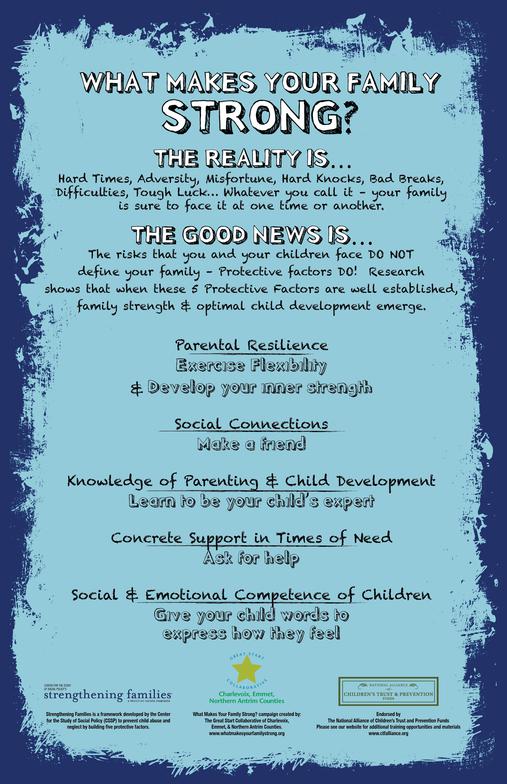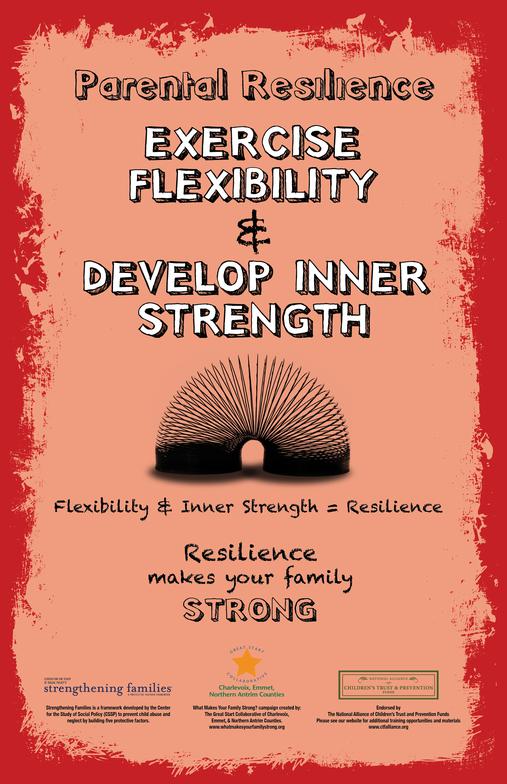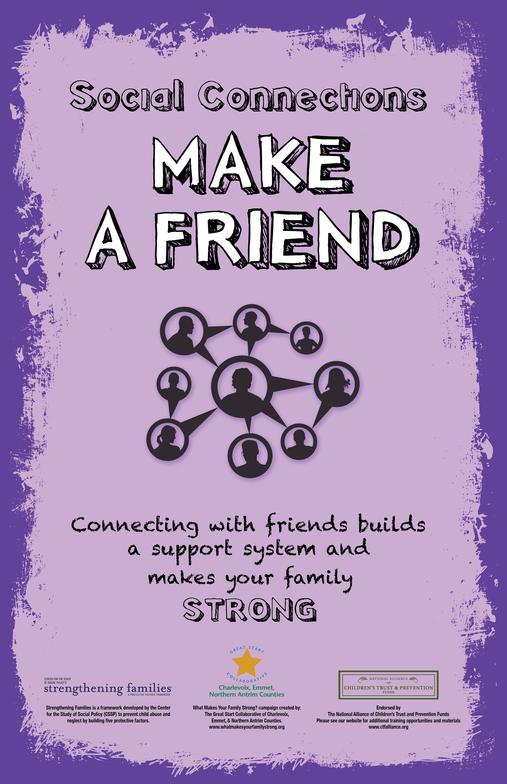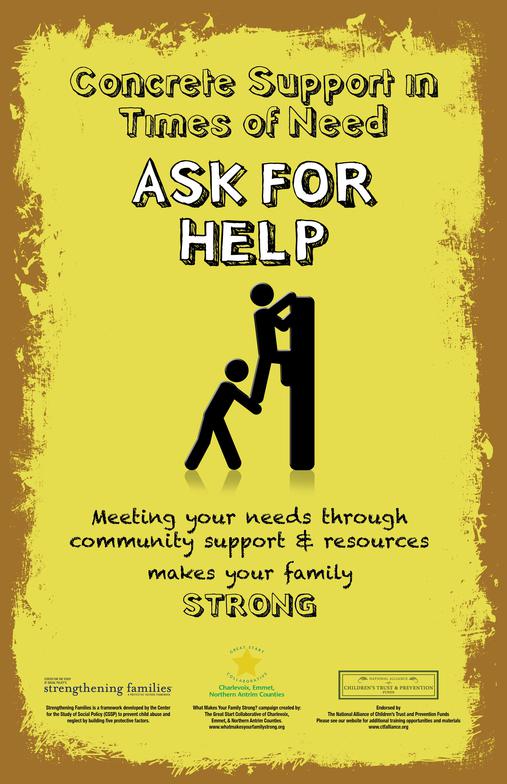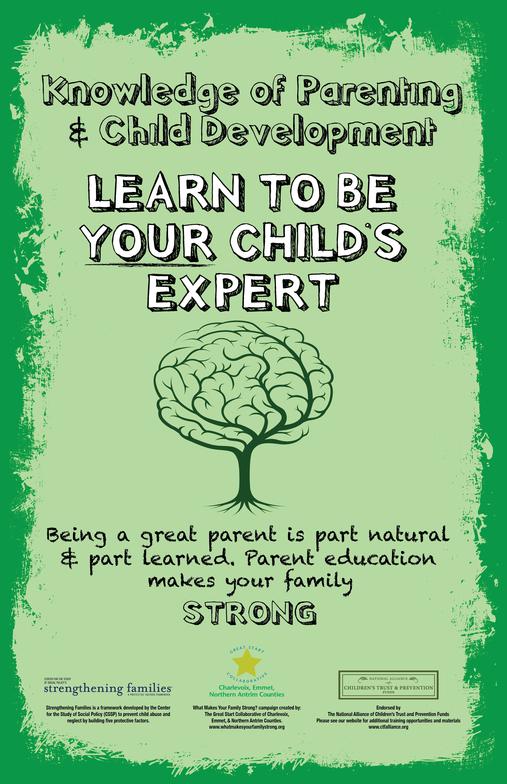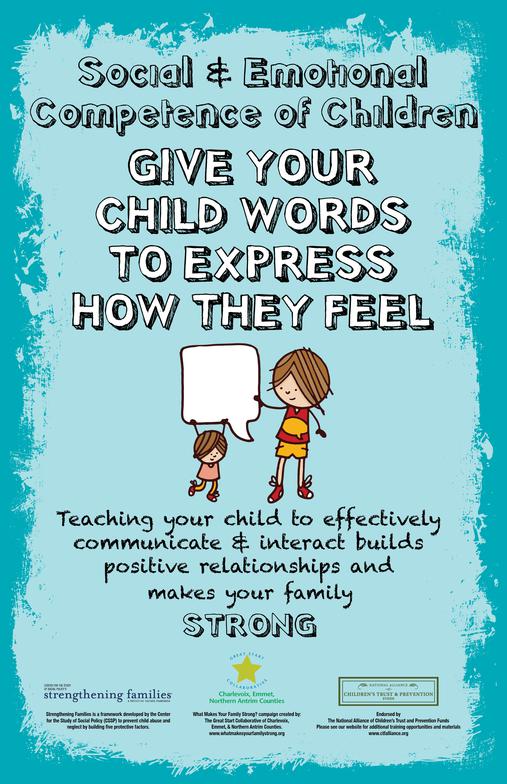What Makes Your Family Strong?
The Strengthening Families Protective Factors Framework is a national research-based initiative that aims to develop and enhance five specific characteristics (called protective factors) that help keep families strong and promotes optimal development of children.
Protective factors are attributes in individuals and families that, when present, alleviate or eliminate risk in families and increase their health and well being. Protective Factors aid parents in finding community resources, positive support, and coping strategies.
Families are often identified and categorized in terms of risk factors by government, agencies and communities. Research shows that risk factors do not dictate positive or negative outcomes – protective factors do. For example, a child of a family experiencing divorce is at risk for depression. On the flip side, protective factors, such as social/emotional support from a nurturing family member or friend, negates the risk of depression for that child. Likewise, the stresses that occur from job loss or foreclosure can be combated by the protective factors of seeking help from community resources and making social connections that build a positive network of support. Your protective factors act as a shield to counteract your risk factors. They are built through daily interaction with the people and systems that families encounter. They are not complicated or theoretical. They are distinctive traits of healthy family life – many of which you are already living.



